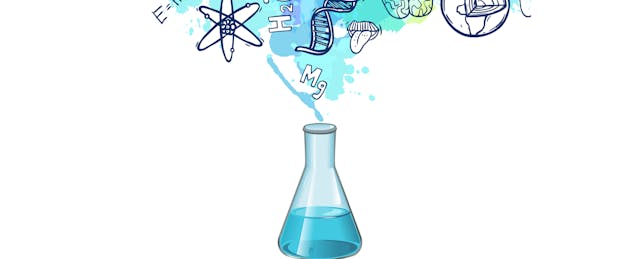The COVID-19 pandemic has caused all of us to make difficult decisions about behaviors we used to take for granted. Those decisions weigh the risk of viral spread with our need for human contact. To make these decisions, we need information and a way to distinguish credible sources from the rest—and that starts with a solid understanding of basic science.
Too often, though, this understanding we’re using to make decisions is obtained solely from our experiences in school science settings.
The sad truth is most school systems are not adept at engaging students in cutting-edge science topics. Science courses typically teach students about scientific discoveries long after they happened. In fact, most school-aged students rarely learn about anything other than the accepted understandings in science that appear in textbooks only after years of debate, advances and consensus. School science gives students few insights into how science knowledge is created and how it progresses over time.
Students also get the impression through simplistic classroom activities that science is straightforward, and that data can stand alone rather than needing to be interpreted. They aren’t often taught that claims must be based on multiple lines of corroborating evidence described within the context of the field’s current best understanding, which necessarily changes over time. Nor are they made aware of the peer-review process in which scientists in the field who were not involved with the research critically evaluate the study design and conclusions.
These experiences in school science sometimes give students the unrealistic perspective of science as a set of facts rather than a dynamic human endeavor. As the world’s understanding of and policies related to COVID-19 evolve, science illiteracy can cause misunderstanding or mistrust in the scientific process.
On top of that, the endless supply of information and opinions available to us can complicate our decisions. Our understanding of the science behind public health is affected by public health messaging, news media reports and the mixed messages of family, friends, pundits and others through social media and personal interactions. All that information is then filtered through our understanding—or lack thereof—of science and the scientific practices.
COVID-19 presents us with an opportunity to enhance our children’s scientific education in real time. The Next Generation Science Standards, the most recent national science education reform document, promotes students participating in the practices that scientists use to create knowledge; practices such as “Developing and Using Models,” and “Engaging in Argument from Evidence.” By developing educational modules that take this approach with COVID-19, students could learn about the pandemic that has so dramatically affected their lives, while also facilitating a better understanding of how science happens.
Most science teachers, however, have neither the time nor the access to content experts to develop educational modules to accomplish these goals in real time, especially with the additional challenges of current remote learning environments. So the responsibility to develop age-appropriate, standards-aligned learning activities should fall on collaborative teams of experts in science education and experts in the science and health fields alongside educators. These resources should also be free and available online so students learning remotely can use it and all schools can benefit from it. But they should not be limited to students; they should also be available to adults interested in continued learning.
In the case of COVID-19, knowledge is growing in front of our eyes, resulting from the work of diligent people from many fields who are learning about the virus, how it spreads, and how to mitigate its dangers to human health and the health of our society. For the reasons described above, my team at the Center for Science and Schools at Penn State recently launched a free course that helps explain “The Science of COVID-19.” There are also resources compiled in databases like LabXchange, and examples of videos generated by scientists and reputable collections of reading materials already available. Others may come in time.
We all benefit from being part of a society in which we can learn and grow as our knowledge of phenomena like COVID-19 increases. Let us take actions to support quality science education—for our kids and ourselves—so we can better respond to the scientific crises of the future.


